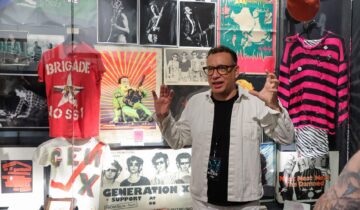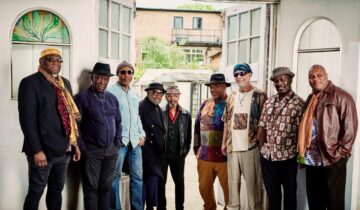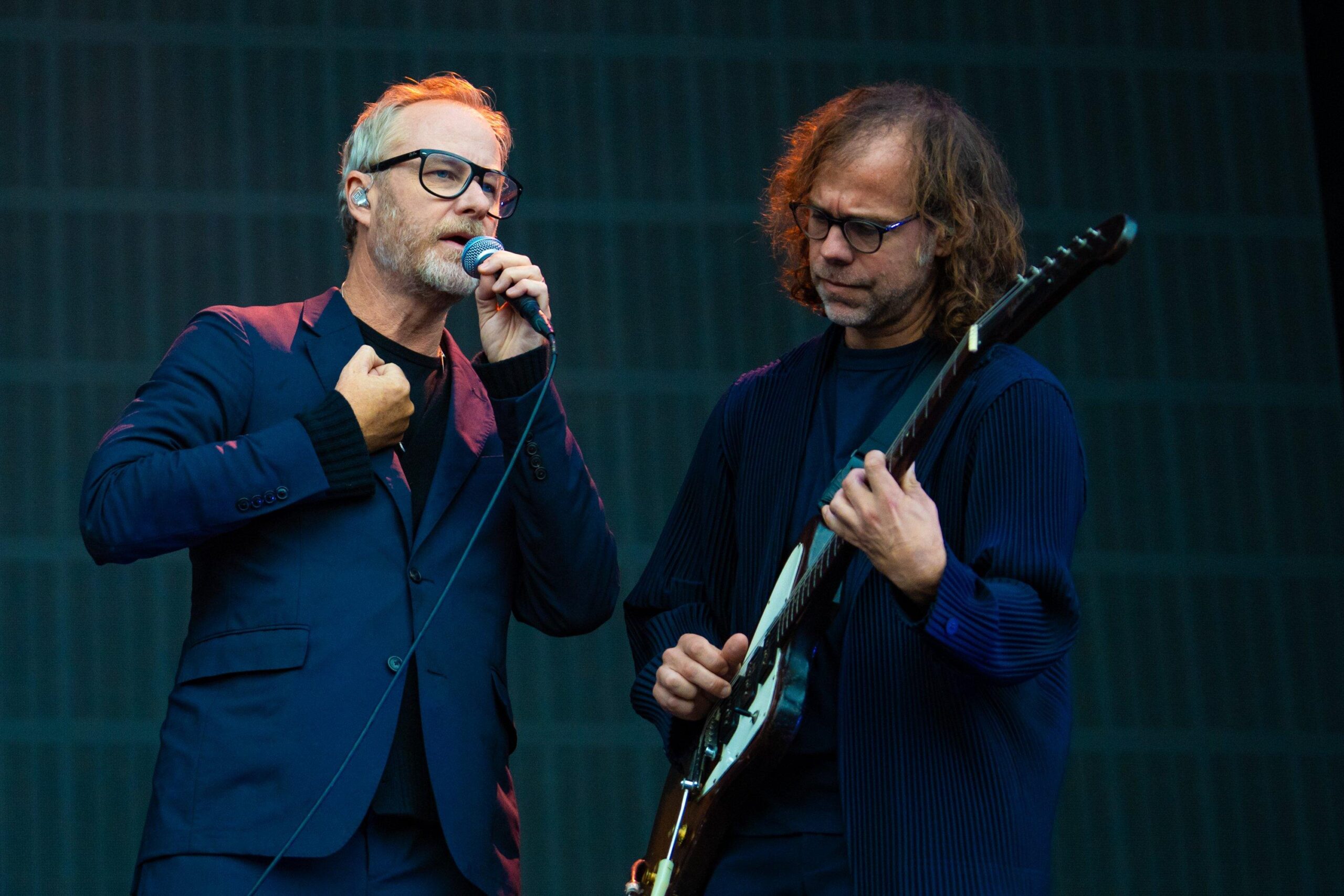In our daily lives, we don’t often openly discuss our feelings about death and dying. So where can people go to have those conversations?
Story for REASONS TO BE CHEERFUL, October 21, 2024
In early August, Christina Werner, a retired operating room nurse, met up with a close friend for a walk through the redwoods in Marin County. It’s a common pastime for many people in the Bay Area, but this walk was different.
Werner and her friend went on the hike specifically to celebrate the life of a friend, an outdoor enthusiast and nursing colleague who had suffered immensely with ALS — the rare, fatal neurological disorder that causes the gradual loss of motor neurons in the brain and spinal cord — and was physically unable to leave the house anymore.
Their friend had chosen to end her struggles that morning in an end-of-life ceremony held at the friend’s home, among a small group of loved ones and an end-of-life doula named Anthea Grimason.
On the hike, both women shed tears, but there was not a big sense of doom. Werner was excited that everything had gone according to her friend’s death plan, and that her suffering had ended.
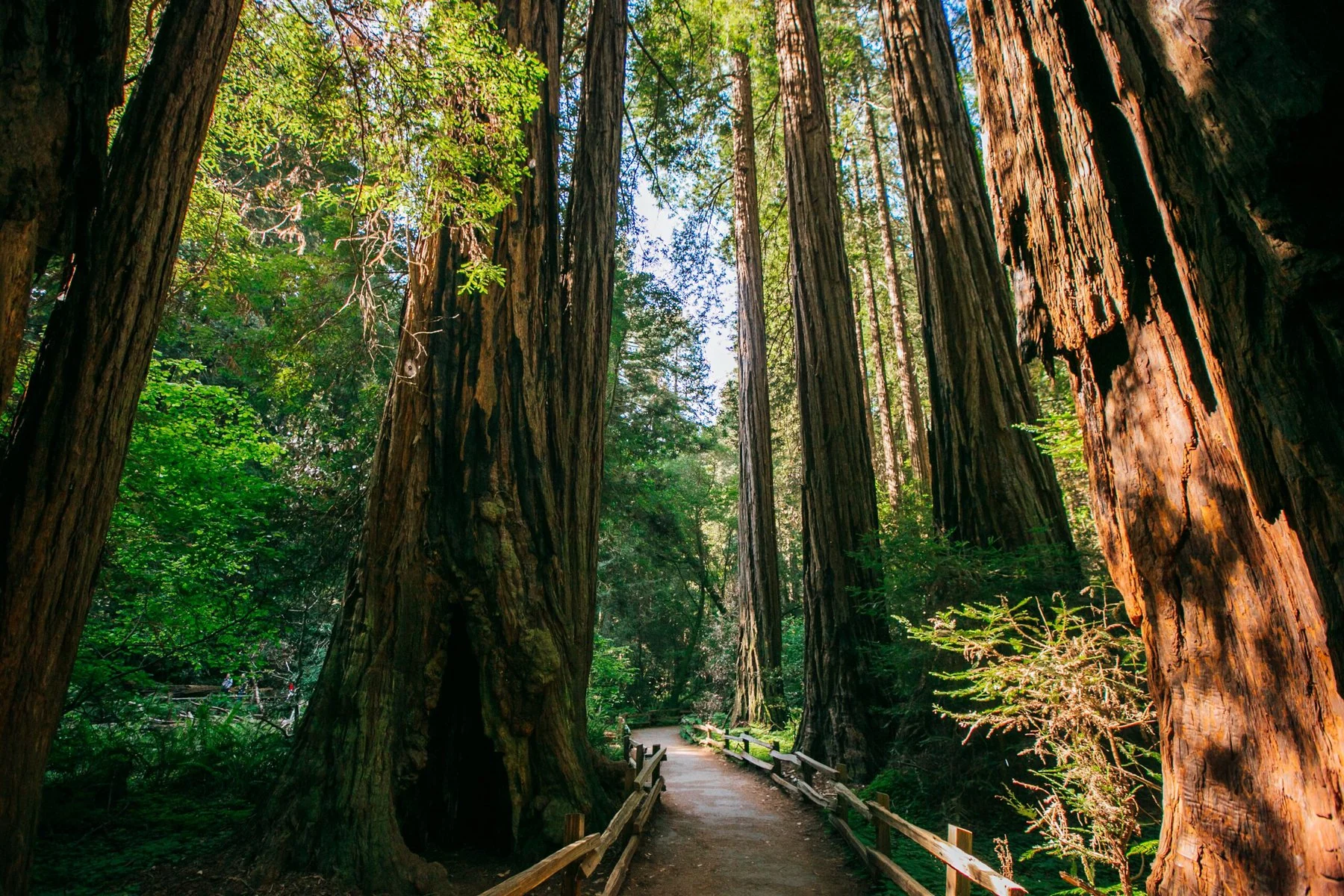
“We were sad, and she will be sorely missed, but we all leave this earth, and I am happy for her in a weird way,” Werner says. “She was suffering, but she made it really comfortable for everybody. She was excited for her D Day. It put her in control of a body that wasn’t functioning for her anymore.”
After the hike, Christina and her friend drove to Tiburon, a small town just outside San Francisco, to attend a Death Cafe. They were among about 30 people who gathered at a small church, where Grimason and a few other end-of-life doulas — individuals trained to provide non-medical support to people who are dying and their loved ones — were facilitating conversations about death and dying. Some had attended previous Death Cafes, and several were attending their first.
Grimason gathered everyone in a big circle to do some quick breathing exercises and explain how the Death Cafe works. The rules are straightforward: bring your curiosity and a willingness to share and listen to others with an open heart, and refrain from giving advice, criticizing another’s beliefs, offering unsolicited feedback or leading people to any conclusion or course of action. No products or services are promoted, and Death Cafes are not intended to provide grief support or counseling. Cake or cookies and tea are offered.
Werner knows the rules very well. She attended her first Death Cafe in Tiburon in July 2022, just after her mother died unexpectedly from a massive stroke.
“Everybody wanted to smooth it over, and nobody was really comfortable about how horrible it was for me,” Werner says. “It was a little traumatic, and I needed to vent and feel comfortable going through it. When I got back here after my mom’s death, the Death Cafe was perfect for me.”
Werner went every month for the rest of the year and has gone intermittently since. At the Tiburon Death Cafe in August after her hike, Werner and the others split into three groups and sat down at tables, where everyone introduced themselves and quickly shared why they were there. Several people said that a spouse, friend or parent had died recently. Some discussed deaths that had happened years ago.
A few were grappling with broader notions of what death means during life — one younger participant shared that she and her partner spend their birthdays visiting cemeteries to help them feel gratitude for being alive and search for tombstones that share their birthdate — and some simply wanted to feel a sense of community around the topic of death and dying. No tears were shed, but there were smiles and even some laughter. People actively listened while someone spoke, and would often ask probing follow-up questions.
The conversation was fluid and vivid: One participant shared that while he was taking care of his mother in her final days, he left her bedside for a short walk, and the sky lit up brightly and the clouds turned a shade of pink, just as she was taking last breath in her bed inside. Another had experienced a “visit” from a deceased sibling. The group discussed the logistics of medically-assisted deaths, and several shared that they don’t want their own death to be a burden to anyone.
A movement to demystify death
The Death Cafe in Tiburon is part of a larger, organized “social franchise” network that, according to its founders, includes nearly 19,000 Death Cafes in 90 countries across Europe, North America, Australia and Asia.
Jon Underwood, a funeral advisor, and his mother, Sue Barsky Reid, a psychotherapist, hosted what is considered to be the first Death Cafe in 2011 in East London, and developed a model that others are free to duplicate. “Talking About Death Won’t Kill You!” is a common slogan.
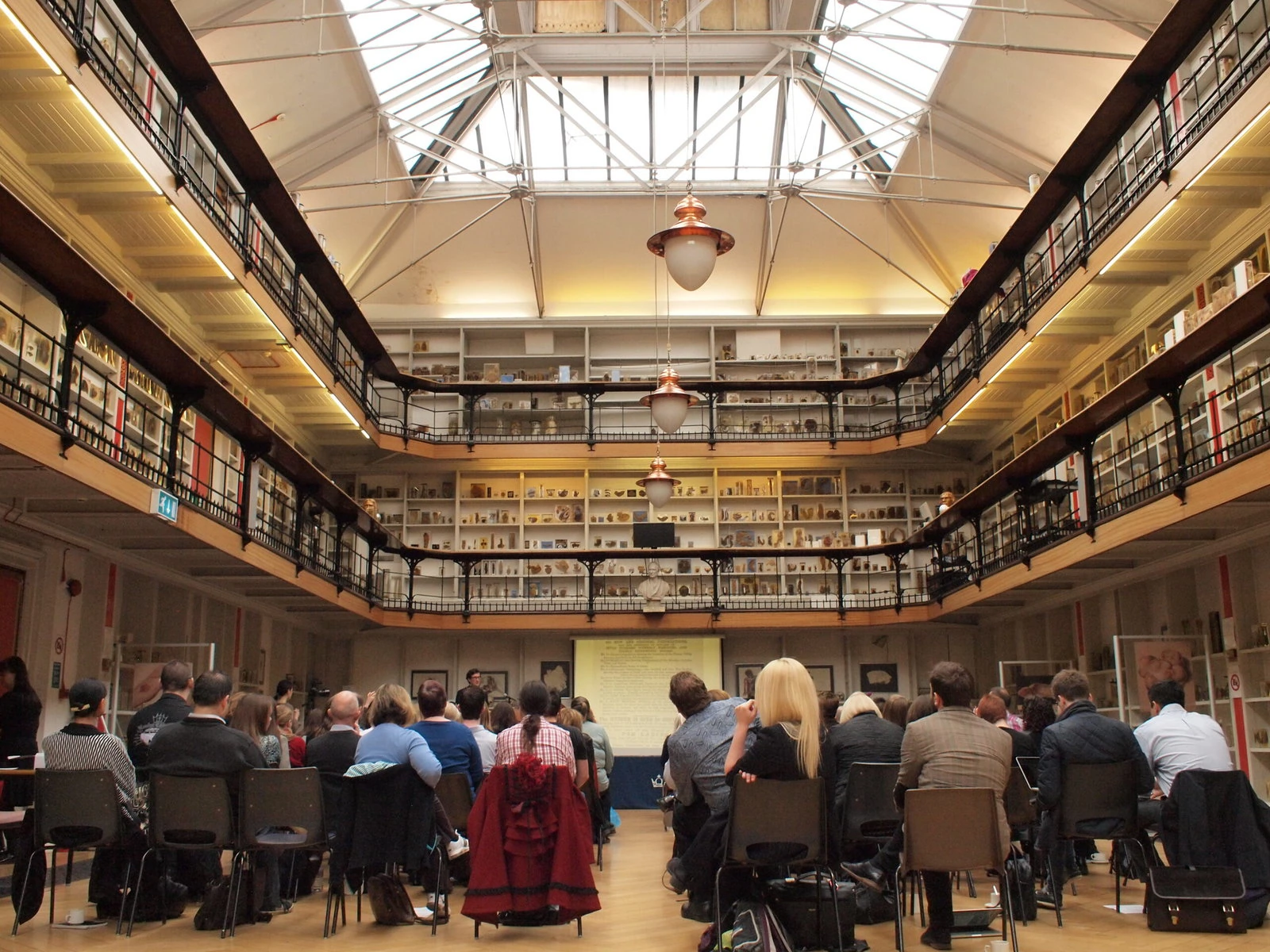
They were inspired by the work of Swiss sociologist and ethnologist Bernard Crettaz, who, after the death of his wife, developed a project in 1999 called Café Mortel, where people could gather to talk about death, because Crettaz felt that death was a taboo and a “fundamental enigma” that frightens people.
In the past decade or so, mortality has become more of a prominent, trending subject. The “death positivity” movement — which includes Death Cafes and end-of-life doulas, along with blogs, YouTube Channels and more — aims to demystify the same enigma of death that Crettaz was so interested in.
From 2015 to 2018, in cities across the US and in London, Sarah Chavez and other staff at a nonprofit called The Order of the Good Death organized multiple-day “Death Salons,” which were robust, TED Talk-style versions of a Death Cafe: participants attended presentations and lectures on topics like human composting, and live performances and screenings of death-related short films — one was a green burial-focused documentary about the first person to be buried in a mushroom suit. Chavez remembers one attendee said the Death Salons were like a “Coachella for death.”
About 10 years ago, Chavez was in her late 30s and nearly six months pregnant when her unborn baby was diagnosed with a rare fetal anomaly. She had to make incredibly difficult decisions, and when her health care team struggled to give her the help and support she needed, she turned to an end-of-life doula who was running a Death Cafe in Los Angeles.
Without telling Chavez what to do, the doula asked questions about Chavez’ experiences and beliefs, her fears and expectations. They talked through end-of-life scenarios, which gave Chavez more clarity on the impact of each choice. Every year since then, the doula sends Chavez a text on Mother’s Day to let her know she’s thinking about her.
“Grieving people don’t want silence, they want to talk about that person in their life that died, and they want their pain acknowledged,” Chavez says. “Spaces like a Death Cafe give people a space to talk about death and not be told you’re being morbid or creepy.”
How “Death” doulas work
There is no licensing for end-of-life doulas, however, many undergo training through organizations such as NEDA or INELDA, end-of-life doula associations that offer certificated classes and learning that can include field hours, journaling, case presentations and assessments. Most of a doula’s education comes on the job, by shadowing or partnering with another doula to help gain confidence and skill.
Much in the same way that birth doulas help expecting mothers and parents plan for the birth experience, end-of-life doulas like Anthea Grimason spend a lot of time talking with clients about what they think is important, what they need, what they want and what they don’t want as they plan for an expecting death. End-of-life doulas aim to make death more personal and more normal.
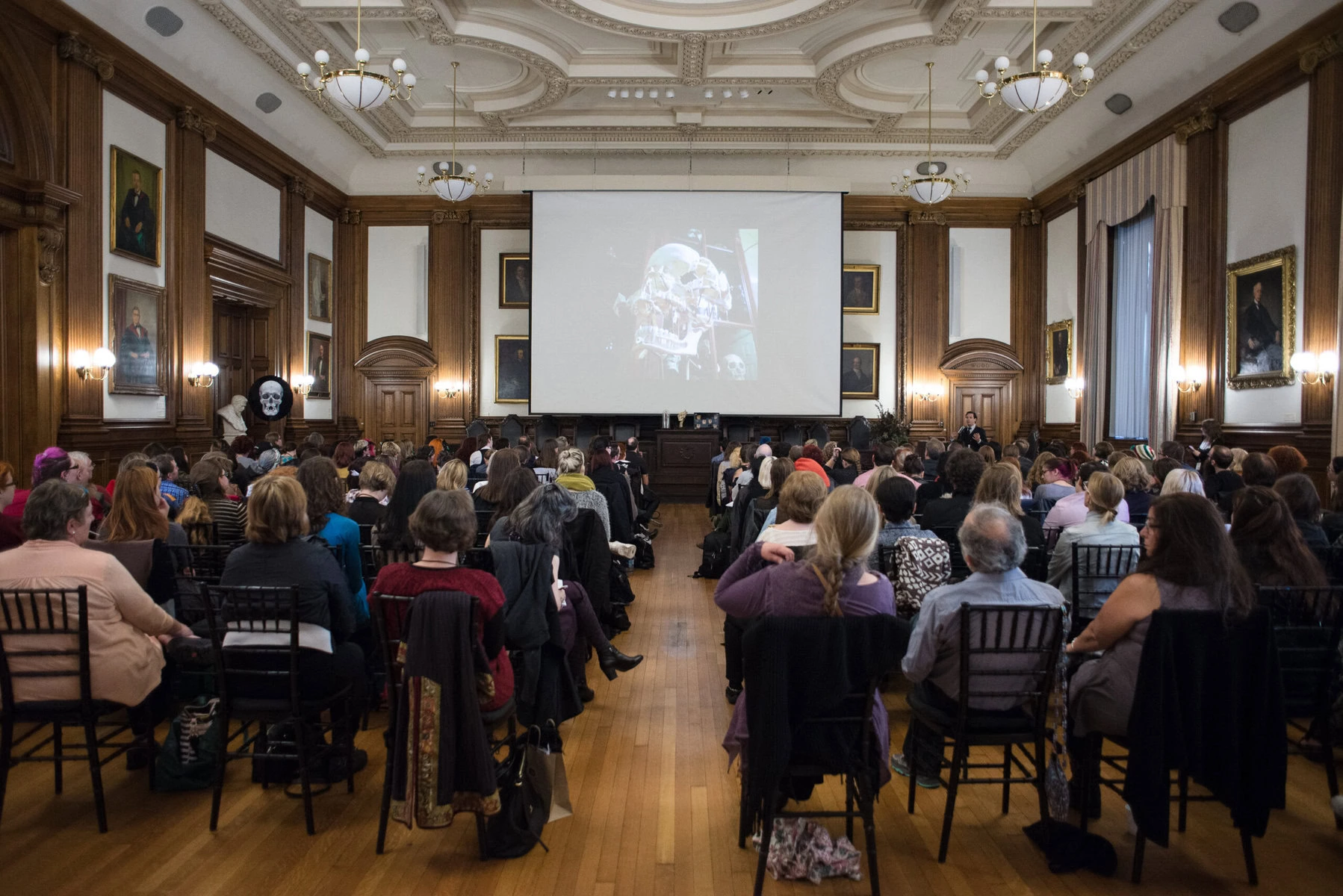
At the August Tiburon Death Cafe that Werner attended, Grimason was calm and relaxed, but also brought a sense of purpose, clarity and focus to the evening. She was specific in her prompts and her responses, but not pushy or overly verbose. She listened more than she spoke.
Grimason might say the doula job chose her. When she was just two years old, living in Ireland, her mother died at 37. Her immediate family did not discuss it, and nobody shared the facts of her mom’s death with her. The predominant feeling was to just carry on with things.
For much of her life, she felt a lot of shame around not knowing the story of what happened to her mother. She often cried herself to sleep at night wondering if her mother’s death was her fault. But that shame slowly turned to curiosity. She explored themes related to death through the lenses of religion, philosophy, psychedelics, therapy and yoga. Grimason, now 46, learned at 40 that her mother got sick with cancer while pregnant with her.
“My journey has been untangling all of that shame, and bringing understanding,” Grimason says. “In a strange way this has been a gift. I can now help empower families and loved ones to be with death, to turn towards it, and be with the hard things. There’s so many gifts in that process, but society does not support it. We are a death-avoiding, death-denying culture.”
Since physician-assisted medical aid in dying is legal in California — and nine other US states — Grimason has been asked to attend many end-of-life ceremonies. She was the doula who sat with Werner’s friend as she took her final breaths. Afterward, at the Death Cafe, Werner and Grimason exchanged a knowing glance as they sat across from each other at the group table. They both felt a sense of peace, but that closure came with a heavy realization that a life had ended that morning.
“Grief is this wild animal that is not predictable, but as humans we like to feel control and have approaches and ways to do things, but working with death and grief is all about being in the moment, not trying to put a fixed process on anything,” Grimason says. “This is a messy human experience, and it’s hard, and as a doula I’m gonna show up for you as best I can, but there’s no fixing it.”
